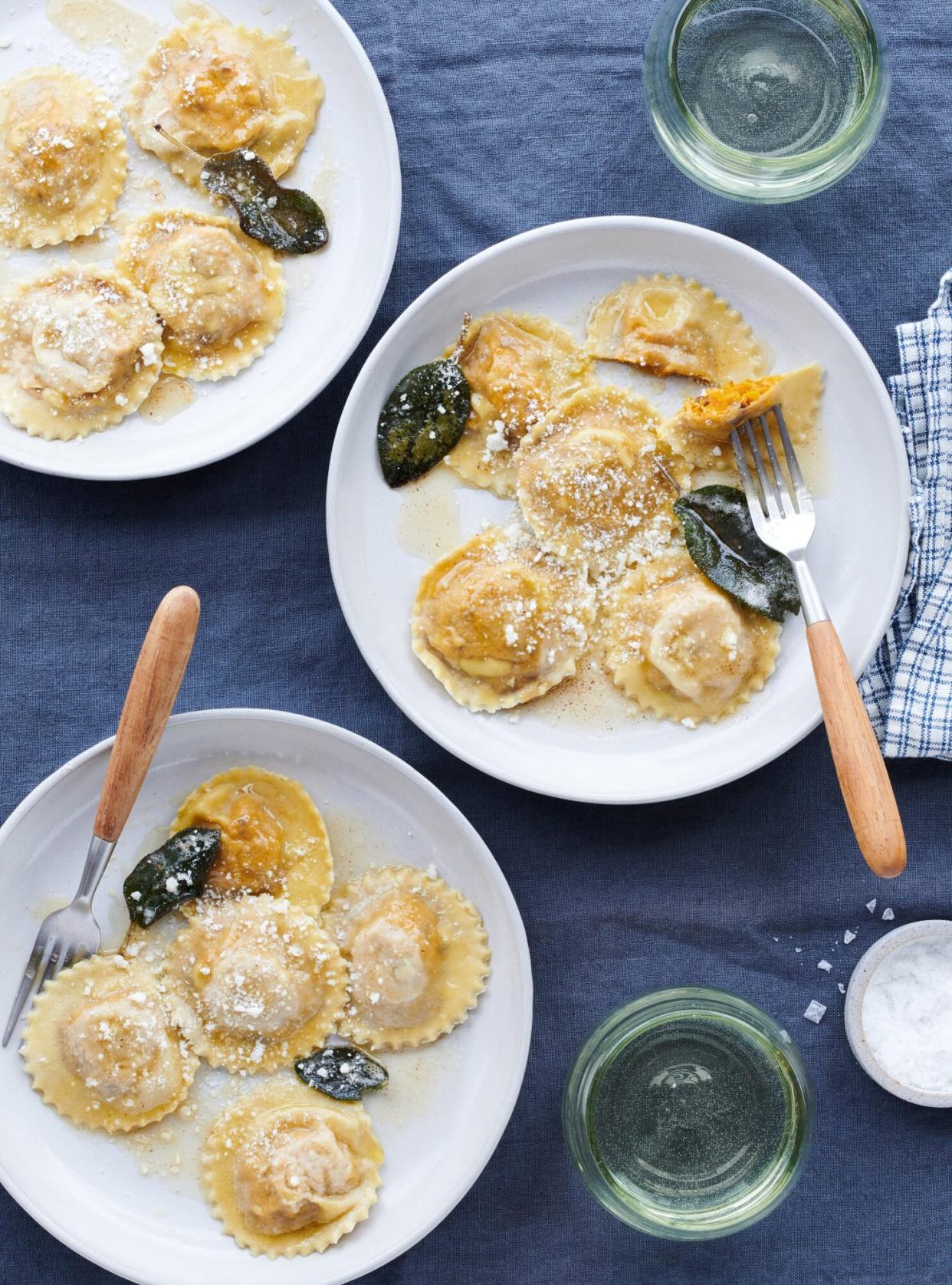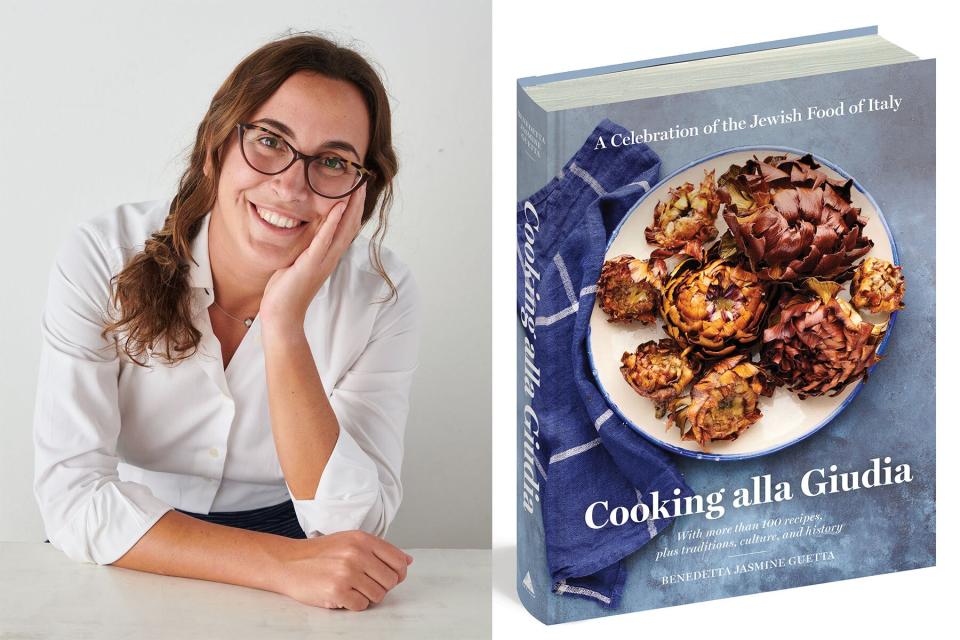Benedetta Jasmine Guetta's New Cookbook Proves Why Jewish-Italian Food Deserves to Be Better Known

Courtesy of Benedetta Jasmine Guetta
Despite its monumental influence on Italian food as we know it today, and despite Jews having lived in Italy for thousands of years, author Benedetta Jasmine Guetta says Jewish-Italian food is a culinary heritage mostly unknown. The population of Jews in Italy today, she says, is just too small. Guetta wrote Cooking alla Giudia ($40, indiebound.com) to teach about this storied culinary history, and to help preserve it. "I have visited congregations big and small all around Italy, spoken with home cooks young and old, and I have come across a very sad finding," she says. "A lot of dishes that were once considered standard Jewish fare have already largely been forgotten, treasured by maybe a couple of elderly ladies that can still cook them, but have no children to pass the recipes on to, since the size of the community has faced a continuous drop in the last decades."
To characterize food as Jewish-Italian, Guetta leaned on two criteria: "First, there are the recipes whose invention is attributed to the Jews of Italy by credible historical sources [...]. Second, I consider a recipe Jewish if it's what Jews eat in their own homes, either day in and day out or for the holidays." The Jewish influence on Italian food is evident not just in specific dishes and recipes like Roman deep-fried artichokes, sweet-and-sour sardines from Venice, and caponata from Sicily, but certain ingredients that only made their way to Italy in the first place thanks to the Jewish people. Eggplant, for example, was entirely unknown to Italy until Jews brought it with them by way of expulsion from Spain. Italians, reportedly, were even skeptical at first!
Related: What Is Charoset? Here's Everything You Need to Know About This Essential Passover Dish
"Italian Jews were…often expelled from one state and relocated in another one," Guetta writes in her introduction. "But this forced mobility allowed for the expansion, rather than the decline, of their culture." In a most fortuitous parallel, Guetta's own life and travels have, in their own way, done a similar service to Italian Jewish food—in both preserving its customs, but also sharing them with others. Guetta was born in Milan to an Italian mother and Libyan father, and lived in Germany and Israel before moving to the United States. She cites every place she's lived along the way as formative to her own style of cooking, Cooking alla Giudia is her first English language cookbook.

Courtesy of Benedetta Jasmine Guetta / Ray Kachatorian
In 2009, Guetta and her friend Manuel Kanah started the blog Labna. In the beginning, it served as a platform to collect recipes the pair would teach in cooking classes. But interest in their Jewish-Italian food grew quickly and unexpectedly. "[It] took me by surprise: I didn't consider my Jewish recipes especially exciting—they were just what we ate at home—but as my public profile grew, my readers demanded more and more of them. Not cookies, not pasta, not the vegetarian food I liked so much: they wanted the Jewish recipes." These days, Labna has nearly 800 recipes in its archives. And while her own Jewish-Italian heritage naturally espoused a love for cooking these recipes, it was the encouragement of Labna's readers that set Guetta on a mission to write a cookbook.
"My readers had questions that needed to be answered; there were prejudices awaiting to be busted; and on top of all of that, there were also Jews of all ages out there, in the country and elsewhere, that came to me looking for the lost flavors of their childhood, the food their grandma made for them but they didn't really learn to prepare." When conceptualizing what this book would become and who it would be written for, Guetta's first thought was to write for a primarily Jewish audience. However, she credits her editor, Judy Pray, with suggesting she think about an audience with a widened scope—the hope being that the traditions of Jewish Italian food have an even greater chance of survival with the most inclusive audience possible.
Still, it was important for her that the book also serves a Jewish audience and its specific needs. "As a keen reader of cookbooks, I have often wished I would find recipes organized by meal types as well as—why not—also Jewish holidays. That's why I have added not only the kashrut indexes, but a few paragraphs about the Jewish holidays, indicating which recipes are traditionally prepared for each festivity."
For the future, another cookbook is in her sights: Next time, about Libyan food. For now, living in Santa Monica, Guetta explores Ashkenazi Jewish food and Jewish deli culture by way of Café Lovi, a small café she opened only five months ago. Her current focus? Smoking her own pastrami.

